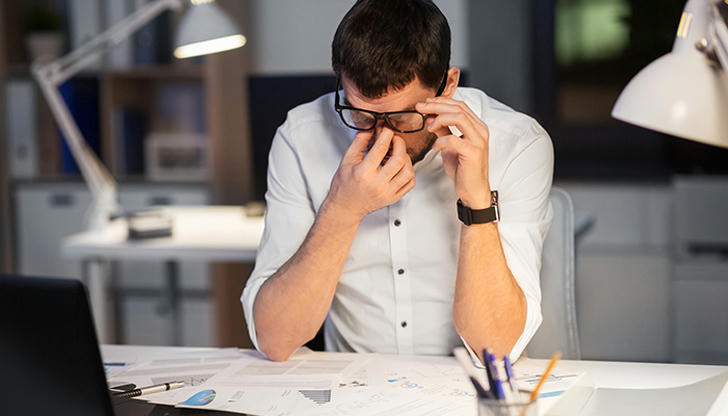6 Ways to Relieve Tiredness

A healthy body is a foundation for us to live, work and study better, and the first prerequisite for doing anything. Health requires an optimistic and cheerful attitude towards life, and health also comes from our good living habits every day. But many people will feel tired even they just wake up.
That is mental fatigue, which is different from the physical fatigue caused by the body's energy consumption due to continuous work. It refers to the fact that people engage in some monotonous and mechanical work activities for a long time. It leads to a significant decrease in people's enthusiasm and interest in work, life, and even boredom. The following six ways will help you relieve tiredness.
1.Take time to exercise every day

Exercise for 10 minutes or more per day, such as playing with children. This is the bottom line of a healthy life, otherwise, metabolic diseases such as obesity and diabetes will come to you. Take 30 minutes of moderate-intensity exercises, such as jumping aerobics. If you want to change your unhealthy living state and have a certain promotion effect on your health, this exercise intensity is necessary.
2. Learn to combine work and rest

To a certain extent, mental fatigue is the tiredness of the current work. We must learn to arrange time reasonably and prioritize work. Important work should be completed first. At the same time, we should develop good and regular living habits and pay attention to active rest. Appropriate exercise can improve the body's vitality, energy and the body's ability to adapt to complex and boring work. Try to sleep 7-8 hours every day.
3. Develop interest in your work

The generation of interest is related to the excitement points in the cerebral cortex, and it is not easy to get tired of engaging in the work of interest, which can reduce the probability of psychological fatigue. When working, if you find that you are not interested in work, you don't need to be too nervous or worried, so as not to form a mental burden. The correct way should be to cultivate your own interests.
4. Make fewer decisions

Maybe you don't realize that modern people make countless decisions every day - which color of lipstick to put on, staring at the title of the article on the phone to choose which article to open, which takeaway for lunch.
Modern society provides people with a wealth of choices. Behind the apparent freedom, we are caught in the cage of choice. According to research by Kathleen Vohs and others, too many choices can damage our mental energy and self-control, and we're more likely to make unhealthy decisions and tend to do things that feel easiest—because we're tired enough.
So it's not unreasonable that Jobs always wears the same black sweater and jeans. You don't need to be so exaggerated, but at least try to make fewer decisions, like ordering the same coffee every day and eating the same dinner every Tuesday. Or do fixed things at fixed times to enhance the sense of order in your daily life, such as making a list of daily tasks, but don't have to be too strict. By keeping some basic, routine simple decisions (or even eliminating them), we have more mental energy to deal with the rest.
5. Try little things that you find difficult but good

Sometimes what you think of as tiredness is actually a fear of retreat, stemming from a lack of confidence and an overestimation of the difficulty of the task. Psychologist Albert Bandura coined the concept of "self-efficacy", which refers to the degree of belief in an individual's ability to complete tasks and achieve goals. According to research, past experience is the most important factor in determining an individual's self-efficacy, with successful experiences increasing self-efficacy and failing experiences reducing self-efficacy. This means that you have to try to create some positive behavioral experiences first—believing yourself is useful.
6. Daze 5 minutes

Medical research shows that daze is the easiest way to reduce stress. When the mind is not thinking about anything, the alpha brain waves in the brain are enhanced. This special brain wave can inhibit information overload, allowing for better concentration, which improves mood, reduces stress, relieves anxiety, strengthens memory, relieves pain, and improves immunity. Another study found that the appropriate amount of sleeplessness every day can reduce the risk of anxiety and depression by 25%.

